Embibe Experts Solutions for Chapter: Work and Energy, Exercise 1: Exercise
Embibe Experts Science Solutions for Exercise - Embibe Experts Solutions for Chapter: Work and Energy, Exercise 1: Exercise
Attempt the practice questions on Chapter 11: Work and Energy, Exercise 1: Exercise with hints and solutions to strengthen your understanding. THINK ABOVE AND BEYOND SCIENCE PRACTICE BOOKS solutions are prepared by Experienced Embibe Experts.
Questions from Embibe Experts Solutions for Chapter: Work and Energy, Exercise 1: Exercise with Hints & Solutions
A crane is used to lift a steel girder to the top of a high building.
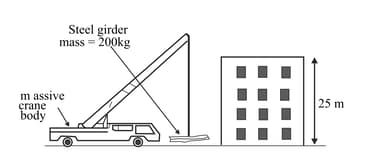
A motor is fitted to the crane. Calculate the power of the crane motor as it lifts the girder at a steady speed of .
When a gun is fired, a very large force acts on the bullet for a very short time. The bullet is fired horizontally. An average force of acts for on a bullet of mass . In the short time it takes for the bullet to reach its target, its horizontal speed has fallen to of its initial speed. Calculate the percentage of its original kinetic energy the bullet still has when it reaches its target.
The student in the figure is doing an exercise called a chin-up.
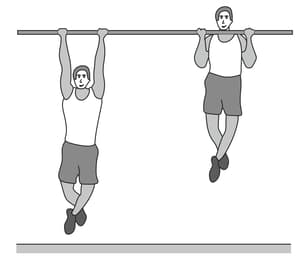
Each time the student does one chin-up he lifts his body vertically upwards. The mass of the student is . The student is able to do chin-ups in seconds. Calculate the power developed by the student. Gravitational field strength .
The photo shows a solar thermal power station that has been built in a hot desert.
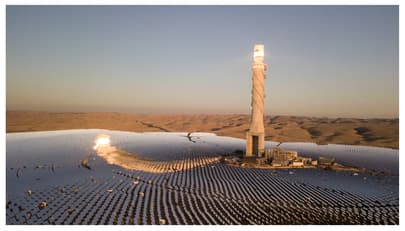
The power station uses energy from the Sun to heat water to generate electricity. Energy from the Sun is reflected towards a solar receiver using many mirrors.
The solar storage power station can store a maximum of of energy. The solar storage power station can supply a town with a maximum electrical power of . Calculate for how many hours the energy stored by the solar storage power station can supply the town with electrical power. Give your answer to two significant figures.
A shop uses escalators to lift customers to different floor levels. The escalators use electric motors. When the shop is not busy some escalators are turned off. A sign tells the customers that the escalators are turned off to save energy.
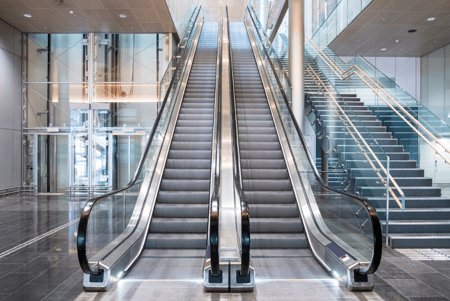
Each escalator has one motor with an average power of . The motor is turned on for an average of each day, each week. Electricity costs . Calculate the cost of the electricity used in an average week to run one escalator.
Give one environmental advantage to turning off electrical appliances when they are not being used.
The picture shows a solar-powered aircraft.
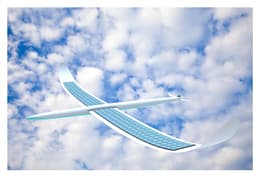
The aircraft has no pilot. On a summer day, joules of energy are supplied to the aircraft’s solar cells every second. The useful energy transferred by the solar cells is joules every second. Calculate the efficiency of the solar cells. What happens to the energy that is not usefully transferred by the solar cells?
The diagram shows a solar powered device being used to recharge a mobile phone.
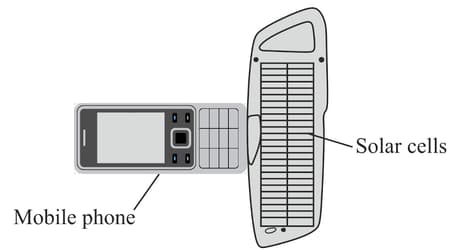
(i) On average, the solar cells produce of electrical energy each second. The solar cells have an efficiency of . Calculate the average energy input each second to the device.
(ii) Scientists have developed a new type of solar cell with an efficiency of over . The efficiency of the solar cell was confirmed independently by other scientists. Suggest why it was important to confirm the efficiency independently.
A wood burning stove is used to heat a room. The fire in the stove uses wood as a fuel. The fire heats the matt black metal case of the stove.

(i) Burning of wood transfers of energy to the stove. The stove then transfers of energy to the room. Calculate the efficiency of the stove.
(ii) Some of the energy from the burning wood is wasted as the hot gases leave the chimney and warm the air outside the house. Name one other way energy is wasted by the stove.
